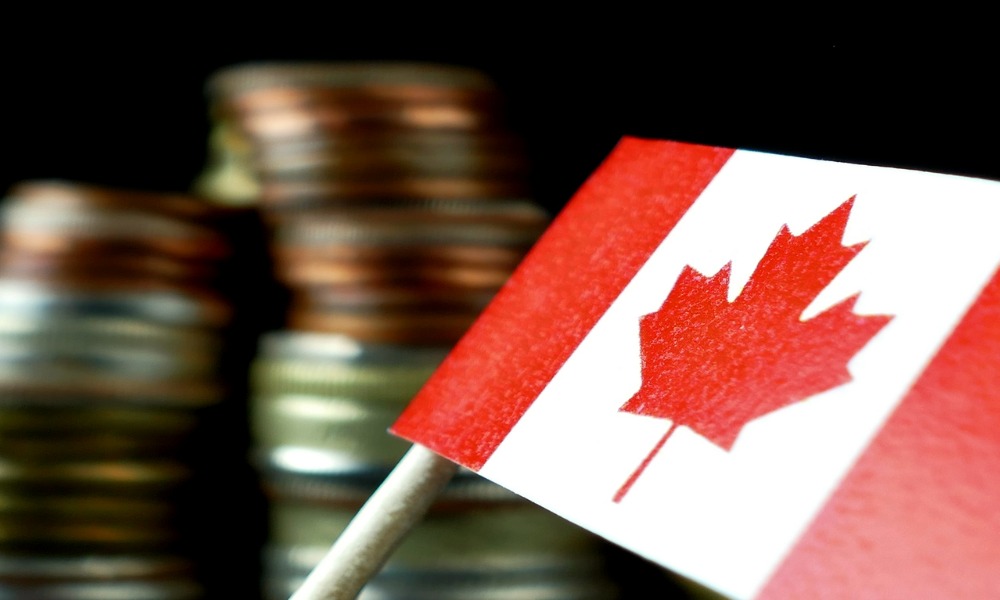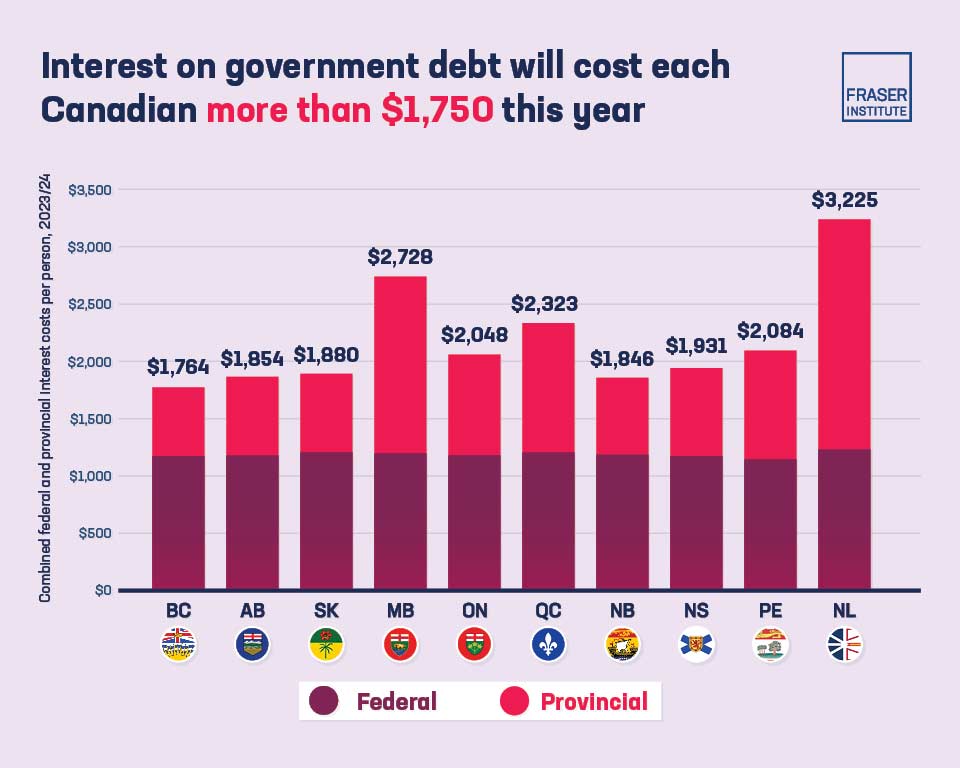The cost of the eyewatering government debt is revealed in a new study

With interest rates remaining elevated, anyone with debt is likely to be paying more now than they were two years ago. And it’s no different for government debt.
The cost of borrowing to fund public services, programs, and investment, will result in a staggering $81.8 billion in debt servicing costs according to a new analysis from the Fraser Institute.
Canada’s federal government will spend $46.5 billion to service debts in 2023/24, which the non-partisan think tank calculates as more than Ottawa expects to spend on childcare benefits ($31.2 billion) and almost as much as the cost of the Canada Health Transfer ($49.4 billion).
“Interest must be paid on government debt, and the more money governments spend on interest payments the less money is available for the programs and services that matter to Canadians,” said Jake Fuss, director of fiscal studies at the Fraser Institute and author of Federal and Provincial Debt Interest Costs for Canadians, 2024 edition.
When provincial debt servicing is included, it adds up to a cost of more than $1,750 for every Canadian taxpayer in every province.
Alberta’s government, for example, will spend $8.6 billion in debt servicing costs, while the Ontario administration will pay $31.5 billion. Each of these exceed the cost of K-12 education in their respective provinces.
Canadians are already facing higher interest charges on a ballooning level of consumer debt, which reached $2.4 trillion in the third quarter of 2023.
Who pays the most?
The level of this burden is not universal of course, with those in Newfoundland and Labrador set for the highest cost of servicing the debts accrued by the federal and provincial governments. Taxpayers in the province will pay $3,225 with those in Manitoba paying the second highest at $2,728. Those paying the least are in British Columbia ($1,764).
“Even before the COVID-19 pandemic and recession, governments across Canada and in Ottawa were racking up large debts, and this debt imposes real costs on Canadian taxpayers in the form of interest payments,” said Fuss. “Interest payments across the country are substantial, and that takes money away from other important priorities.”




